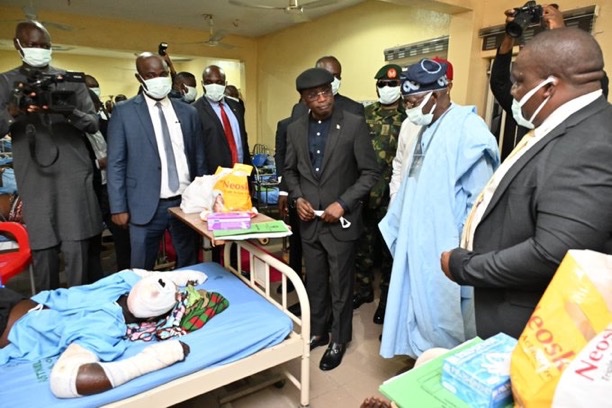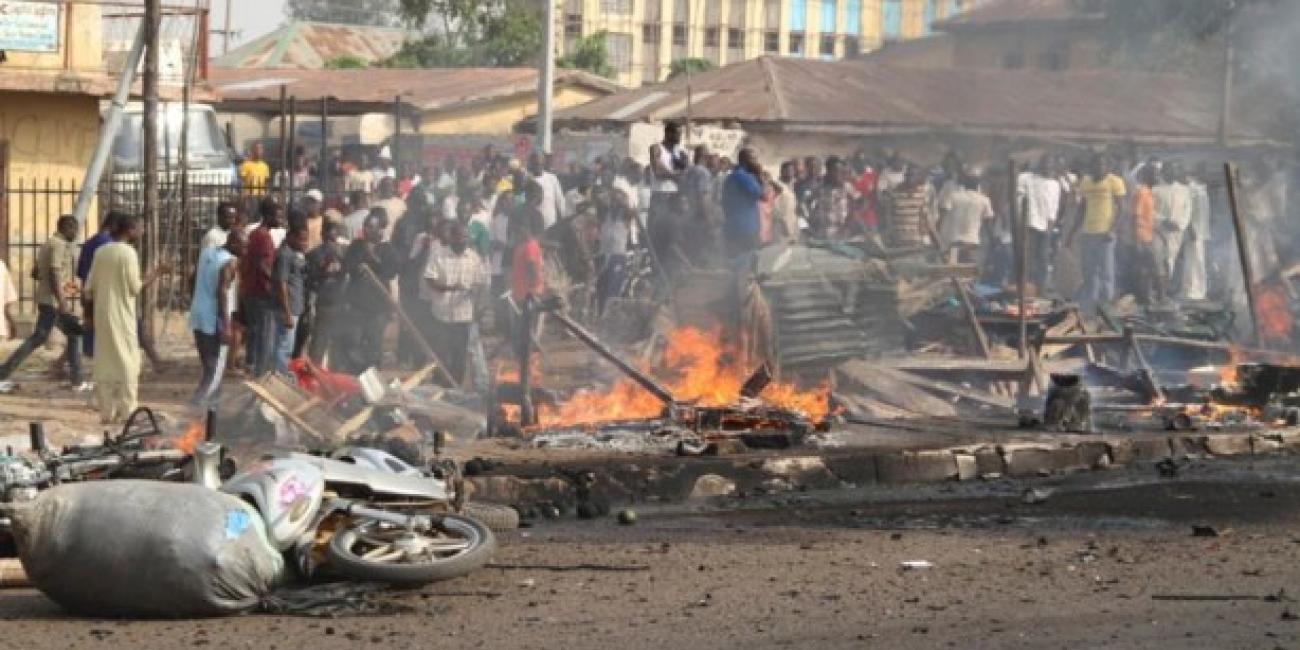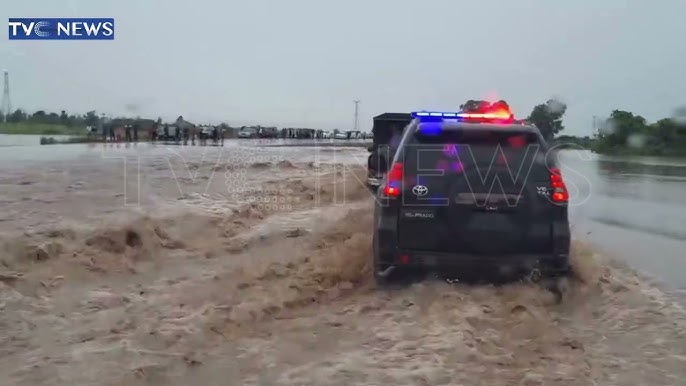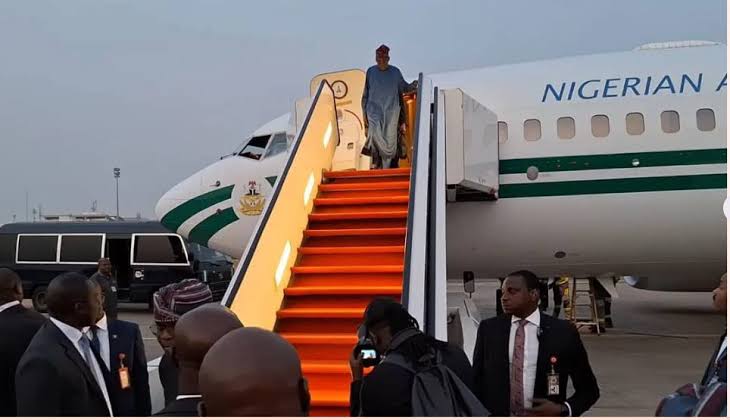President Bola Ahmed Tinubu made a somber visit to the Benue State University Teaching Hospital (BSUTH) in Makurdi to console victims of the recent violent attacks that have devastated communities in Benue State. The attacks, primarily in Yelwata, Guma Local Government Area, and surrounding regions, have claimed over 100 lives, left scores injured, and displaced thousands, intensifying the region’s ongoing security crisis. Tinubu’s visit, part of a broader itinerary in Benue, aimed to demonstrate solidarity with the affected families and underscore the federal government’s commitment to addressing the escalating violence.
The president arrived at the hospital under tight security, accompanied by a delegation that included top government officials and aides. At BSUTH, he toured the wards where victims, many of whom sustained severe injuries from machete attacks and gunshots, were receiving treatment. Tinubu engaged with medical staff, inquiring about the condition of the patients and the hospital’s capacity to manage the influx of casualties, while offering words of encouragement to the victims and their families.
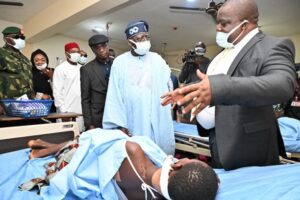
The violence in Benue, attributed to suspected armed herders, has reignited tensions in the North-Central state, known as Nigeria’s “food basket” due to its agricultural significance. Reports indicate that the attacks, which began in early June, targeted rural communities, destroying homes, farmlands, and livelihoods. The Yelwata attack alone resulted in over 50 deaths in a single day, with entire families wiped out, prompting widespread outrage and calls for urgent government intervention.
During his hospital visit, President Tinubu expressed deep condolences to the people of Benue, describing the attacks as “heinous and unacceptable.” He assured the victims of the government’s support, including medical aid and rehabilitation for those displaced. The president also pledged to strengthen security measures, though he did not outline specific plans during the visit, focusing instead on empathizing with the grieving families.
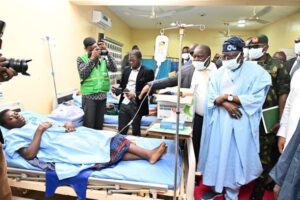
Beyond the hospital, Tinubu’s itinerary included a town hall meeting with community leaders, traditional rulers, and other stakeholders in Makurdi. The meeting aimed to gather insights into the root causes of the violence and explore sustainable solutions. Community leaders, however, expressed frustration over the recurring attacks, citing years of perceived neglect and inadequate security presence in vulnerable areas.
The Benue State government, led by Governor Hyacinth Alia, has been under pressure to address the crisis, with local authorities struggling to provide relief to displaced persons. Over 10,000 people are reportedly sheltered in makeshift camps across Guma and other affected local government areas, facing shortages of food, water, and medical supplies. Tinubu’s visit, while symbolic, has drawn mixed reactions, with some residents appreciating the gesture and others demanding concrete action to prevent further bloodshed.
Security analysts have pointed to the complex dynamics fueling the violence, including disputes over land, grazing routes, and ethnic tensions. The federal government’s Open Grazing Prohibition and Ranches Establishment Law, passed in Benue in 2017, has been a flashpoint, with some groups resisting its enforcement. Tinubu’s administration has promised to revisit the law and explore dialogue, but progress remains slow, leaving communities like Yelwata vulnerable to recurring attacks.
The president’s visit also highlighted the strain on Benue’s healthcare system, with BSUTH reporting an overwhelming number of patients. Hospital officials noted shortages of critical supplies, including blood and surgical equipment, complicating efforts to save lives. Tinubu directed the Federal Ministry of Health to provide immediate support to the hospital, though details of the assistance were not disclosed.
As Tinubu departed Makurdi, he reiterated his administration’s commitment to restoring peace in Benue and other troubled regions. He called for unity among Nigerians, urging citizens to support security agencies in their efforts to curb violence. The president’s remarks, however, have been met with cautious optimism, as residents await tangible measures to address the root causes of the crisis.
The attacks in Benue have drawn national and international attention, with civil society organizations and religious leaders calling for urgent intervention. The Catholic Diocese of Makurdi, which has been vocal about the violence, described the situation as a “humanitarian catastrophe” and urged the government to declare a state of emergency in the worst-hit areas. Similar sentiments were echoed by the Benue Youth Forum, which organized a peaceful protest during Tinubu’s visit to demand justice for the victims.
For many in Benue, the president’s hospital visit was a moment of hope amid despair, but it also underscored the enormity of the challenge ahead. Families who lost loved ones in the attacks expressed gratitude for Tinubu’s presence but emphasized the need for long-term solutions. One survivor, a farmer from Yelwata, shared his story with the president, recounting how he lost his wife and two children in the attack, leaving him with little hope for the future.
